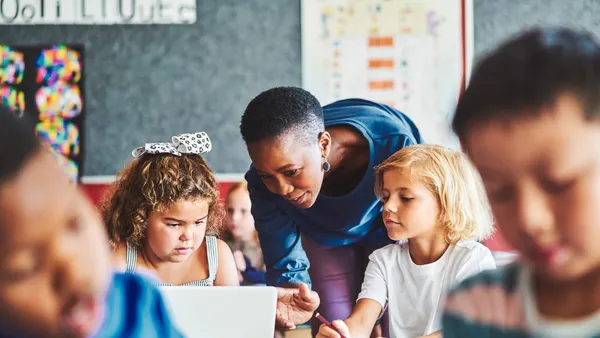Dive Brief:
- Four students in a U.S. government class at Virginia's Centreville High School were able to play a role in the legislative process when their proposal for local agencies to accept text messages to 911 was passed into law, The Washington Post reports.
- Each school year, groups of students in the course are challenged with identifying problems in the state and assembling proposals for solving them, which are then submitted to state Sen. George L. Barker (D-Alexandria), who chooses one to propose as legislation.
- Students who worked on the proposal reported feeling more engaged and interested in the political process than they did prior to participating.
Dive Insight:
Time and again, assignments that present students with real-world scenarios and the skills needed to address them are proven successful in the classroom. Though this most often plays out with tasks related to a variety of professional skills, it holds true with civics lessons, as well.
Around 58% of eligible voters turned out for the 2016 elections — a 20-year low, according to CNN. There are a variety of reasons why many people don't vote, but educators are in a prime position to address that by providing robust civics education. Getting local lawmakers involved by presenting opportunities for students to interact and even craft legislative proposals that could then potentially be taken into consideration and signed into law is one way to go about doing that.
Along with demonstrating, in real-time, how the legislative process works, students also gain experience in civic engagement, as well as debate and persuasive writing. Administrators might also organize school events where students crafting some of the top proposals are given the opportunity to debate their worth before the student body. Students can then vote on their personal favorites, which further expands these skills and experiences.












